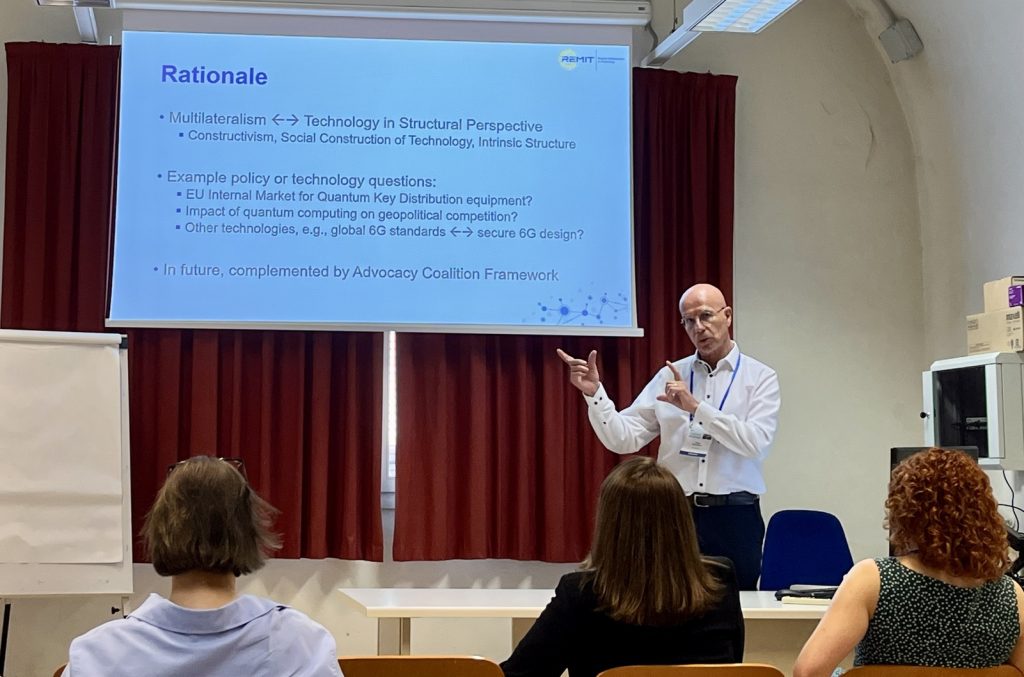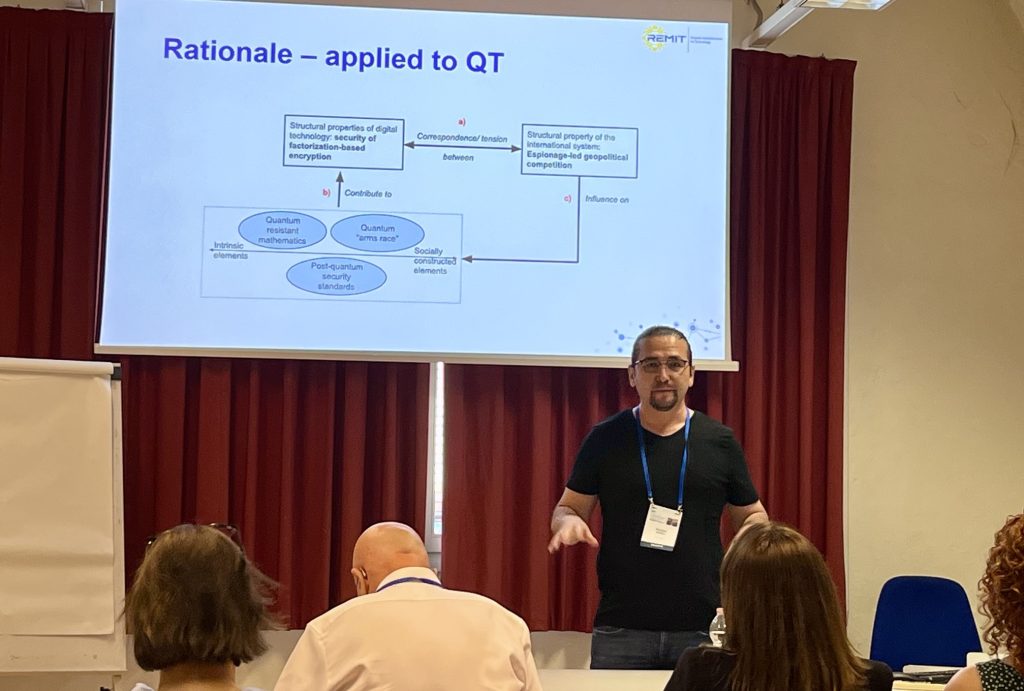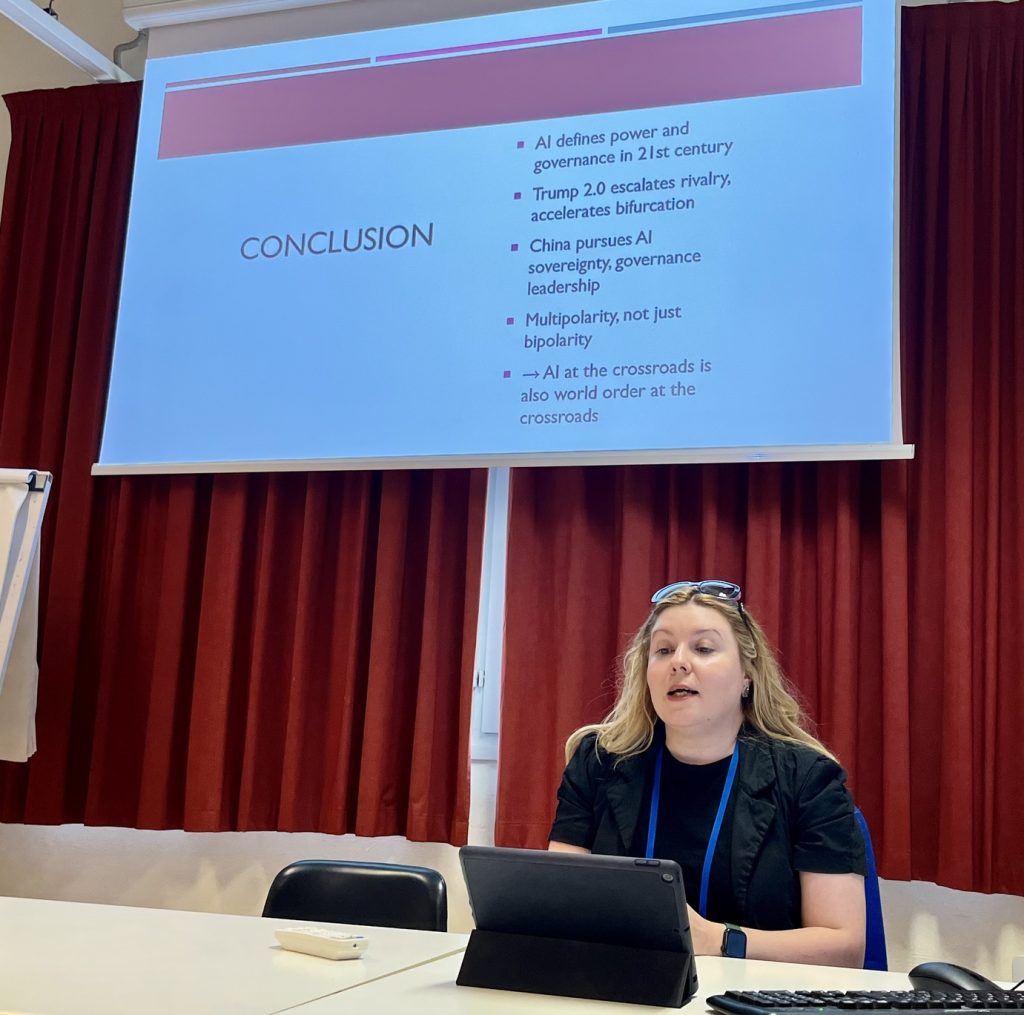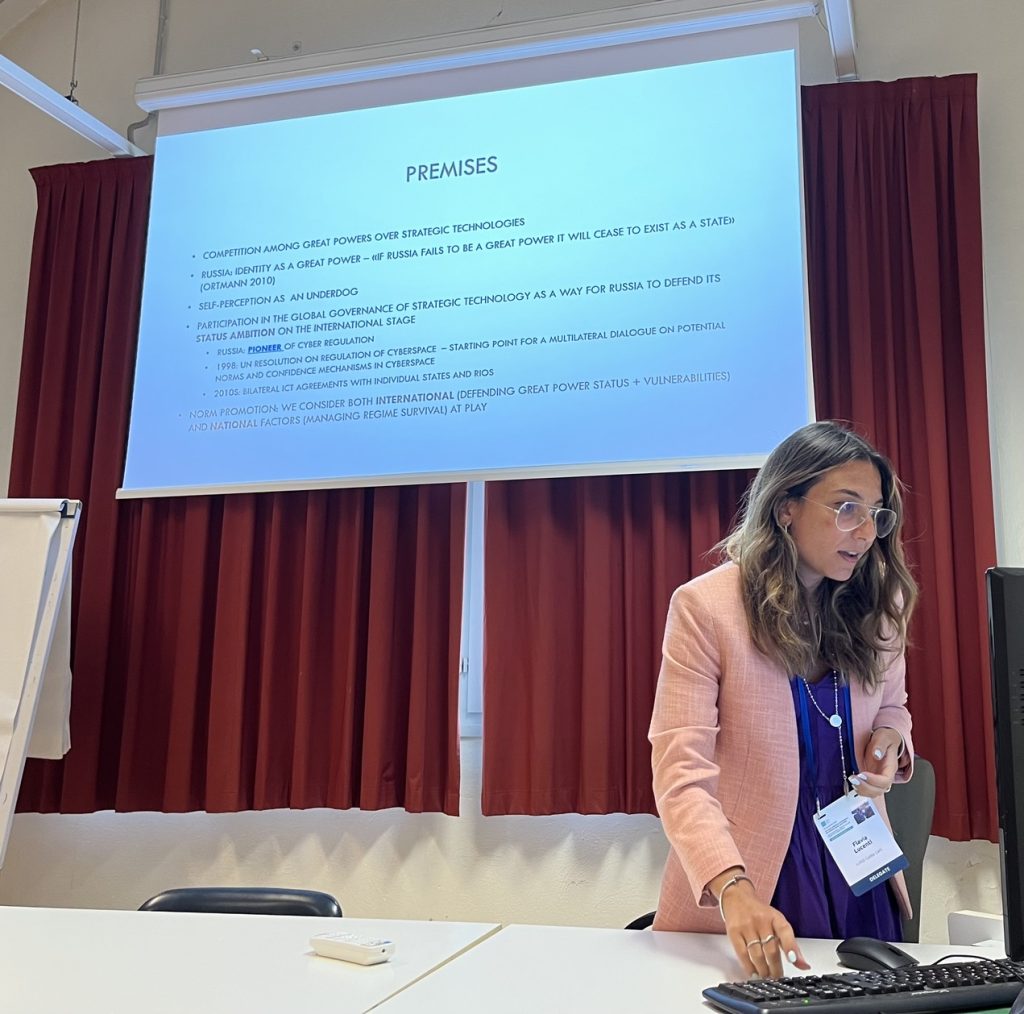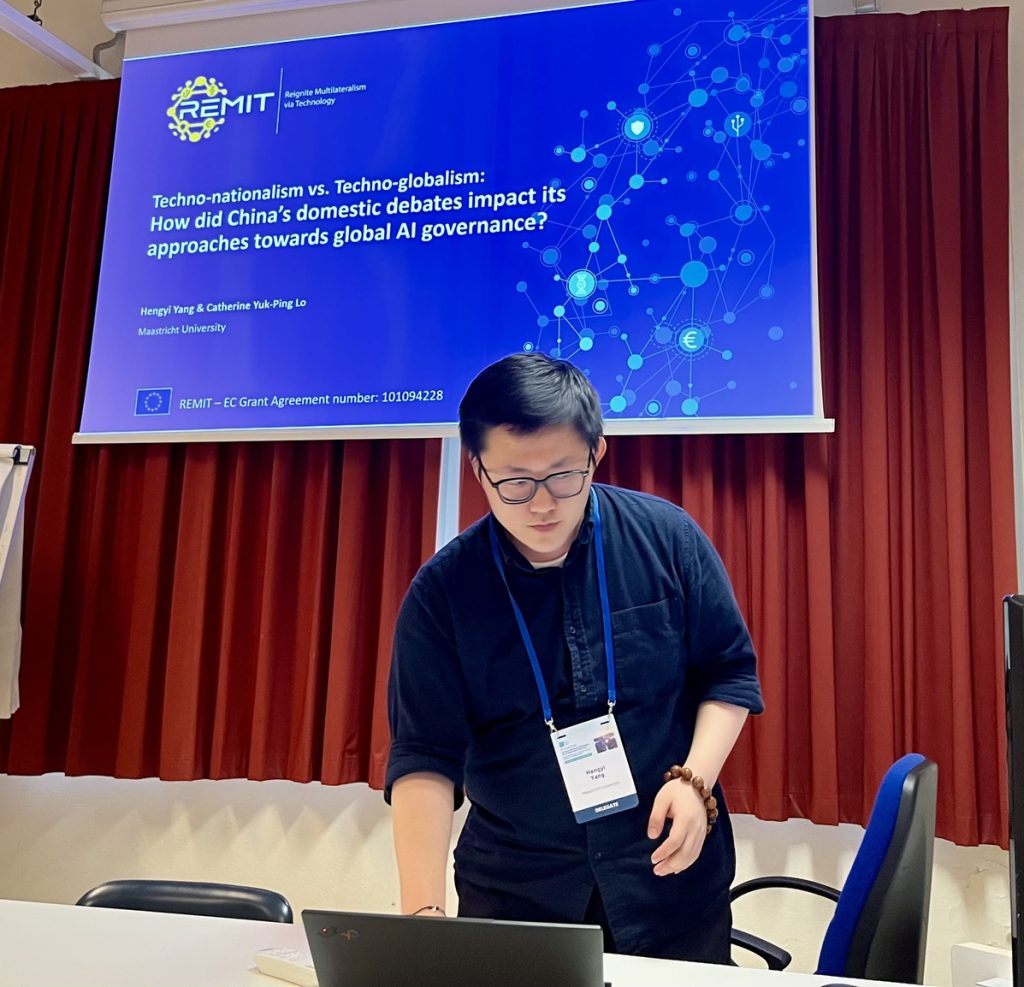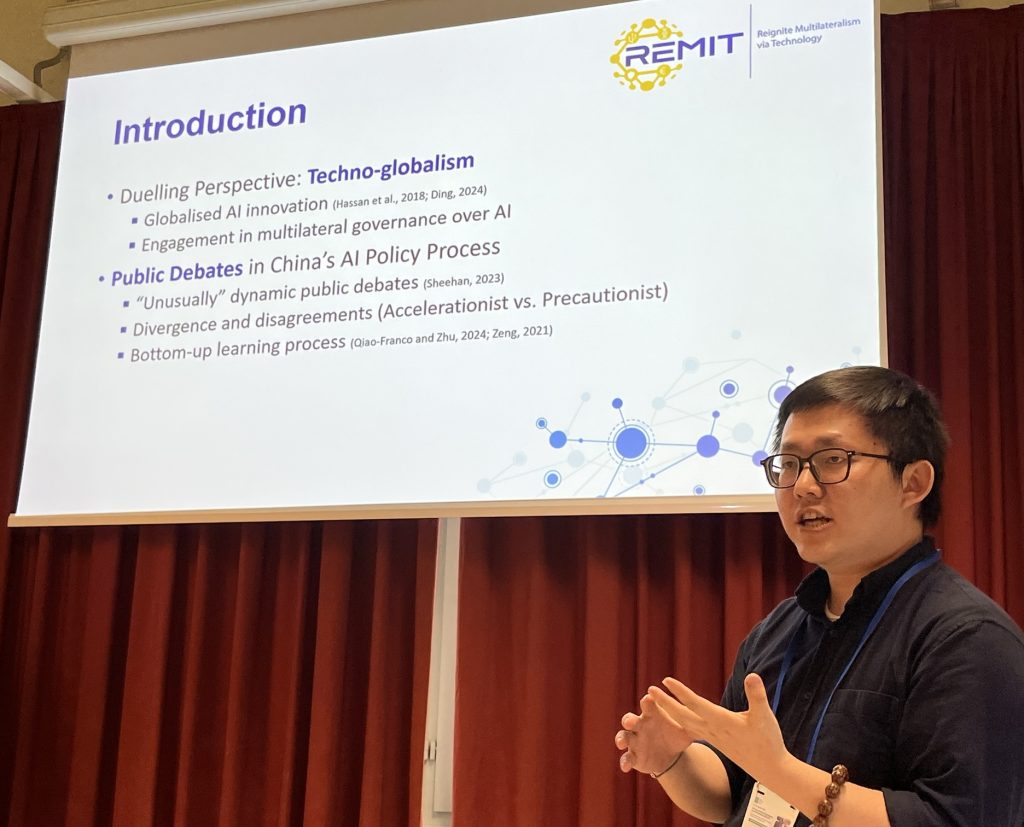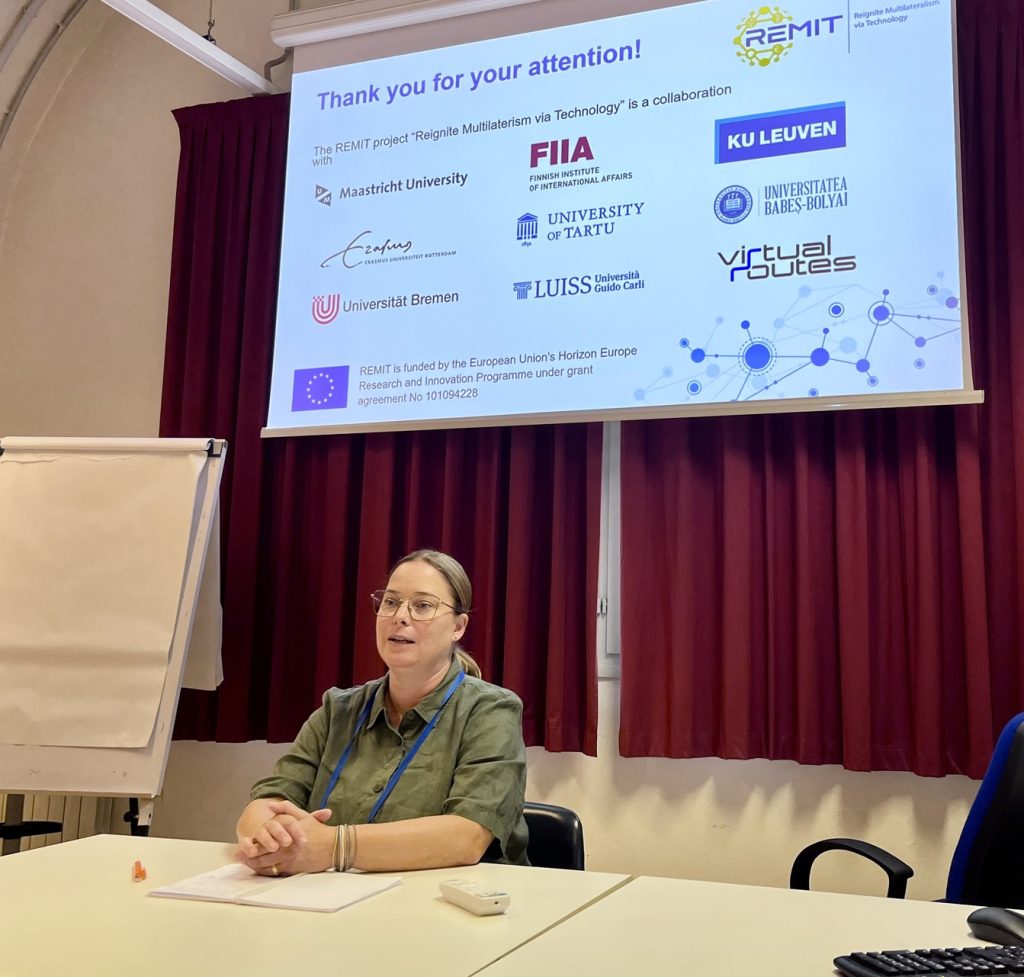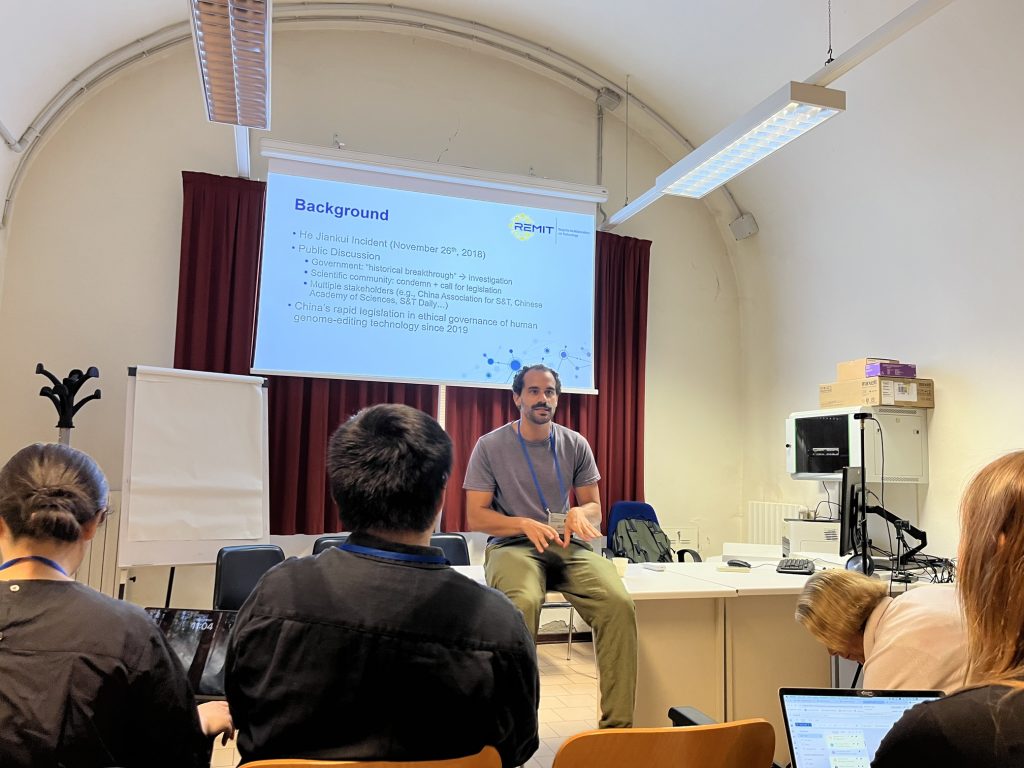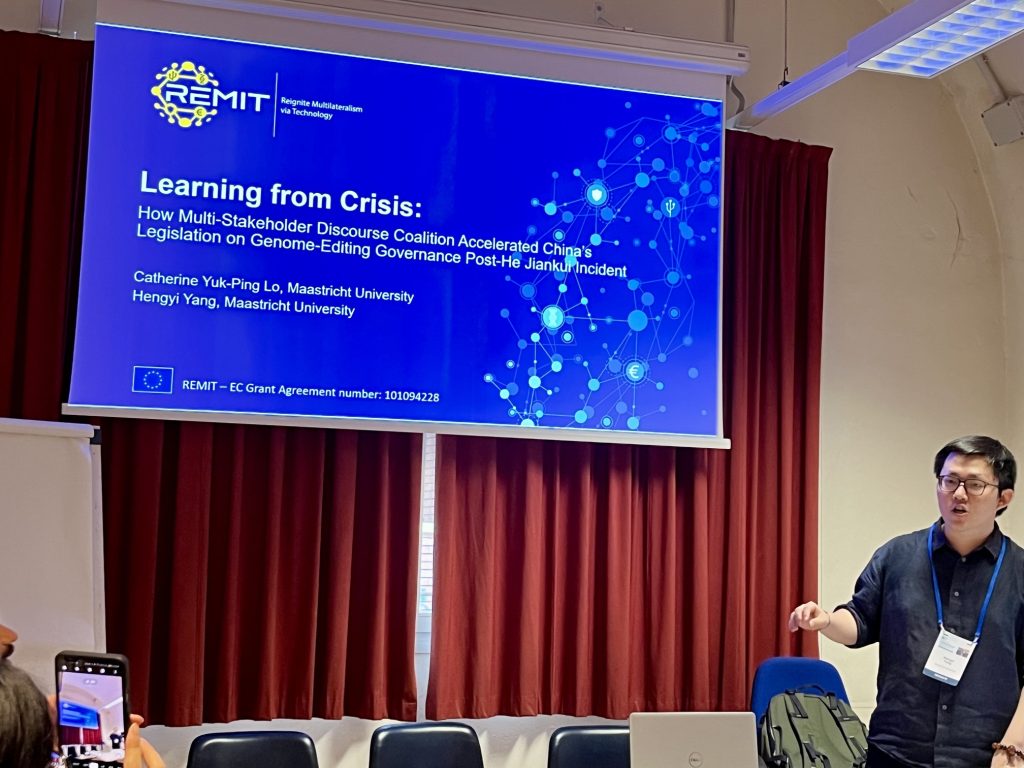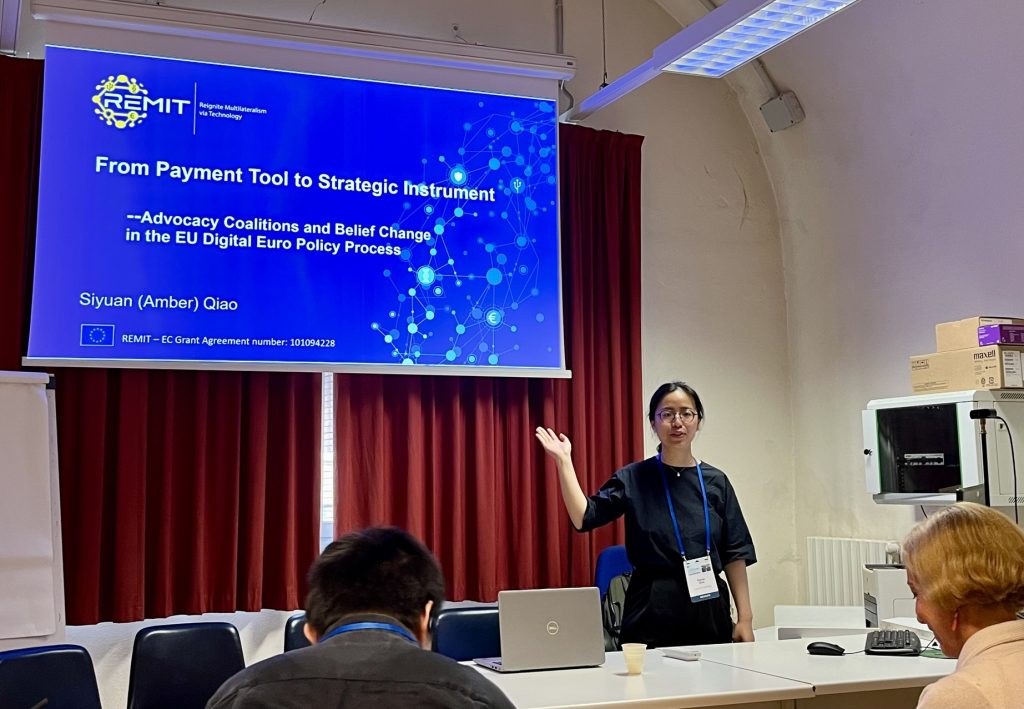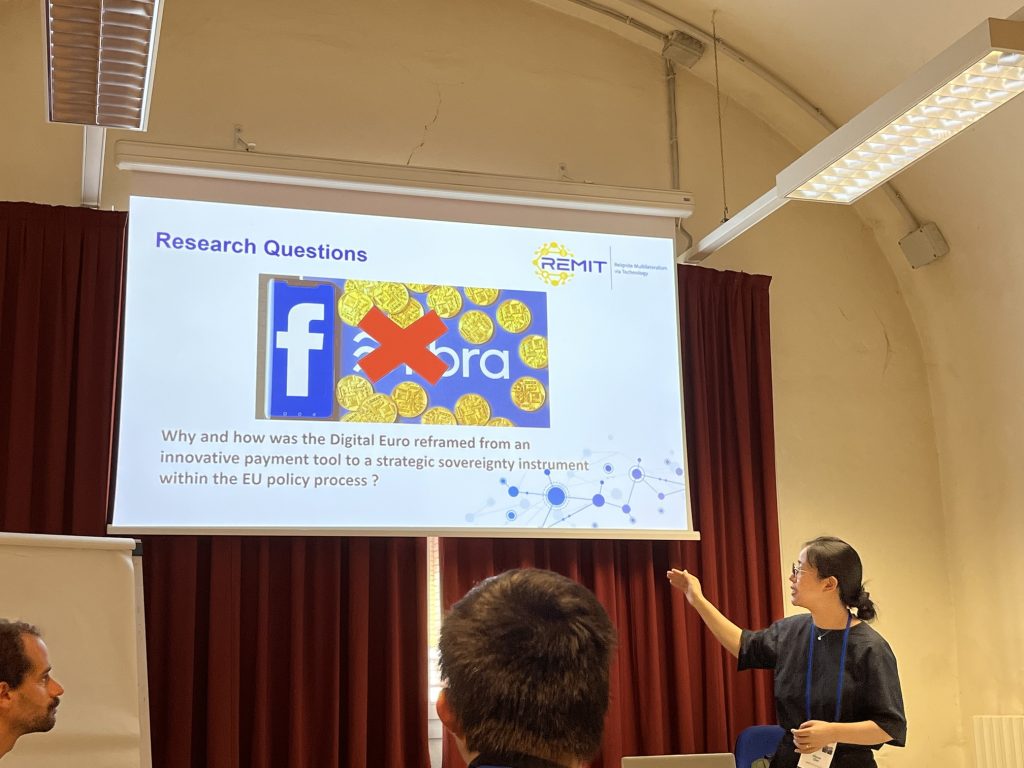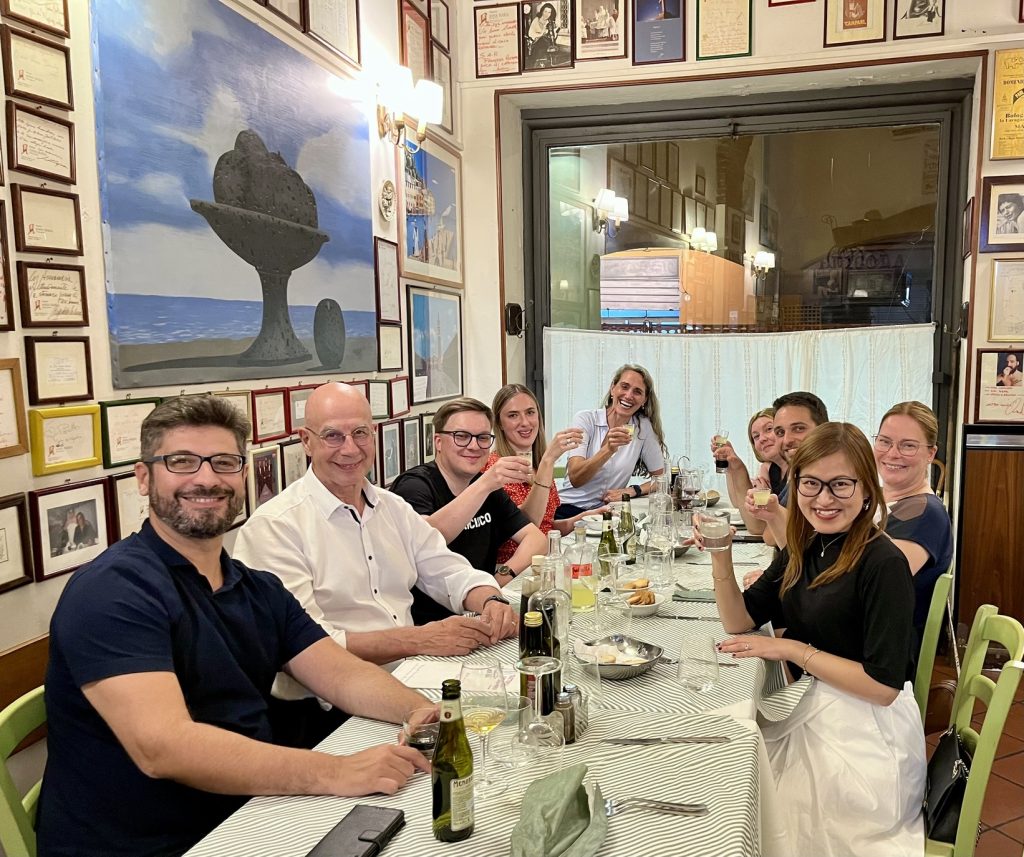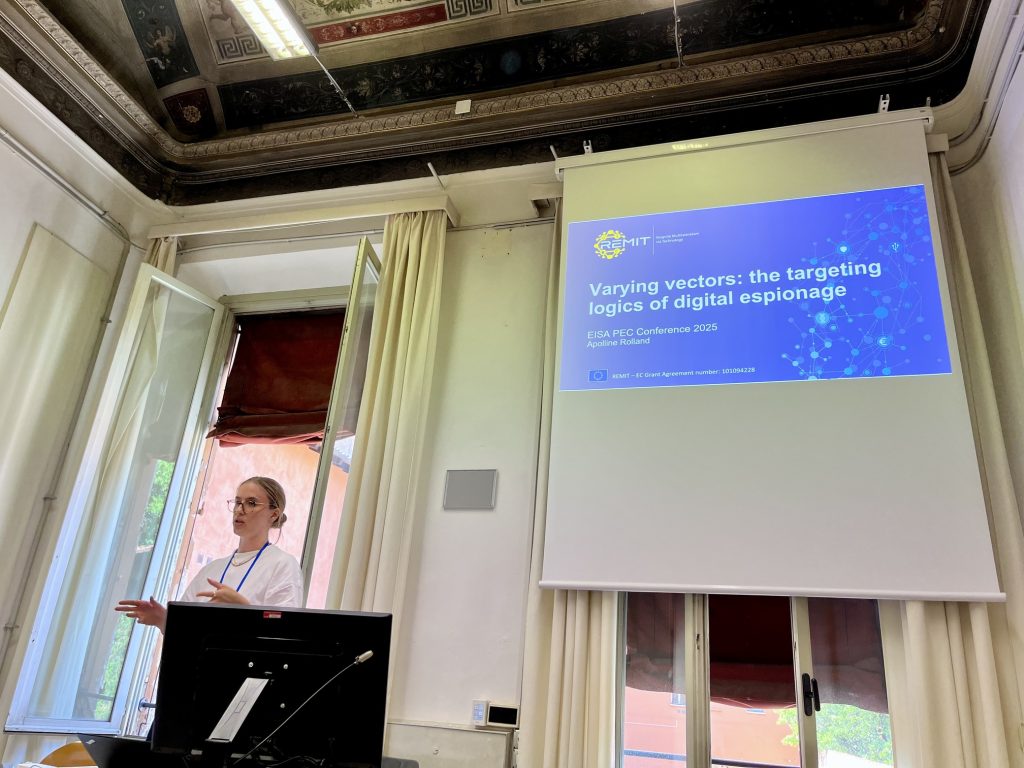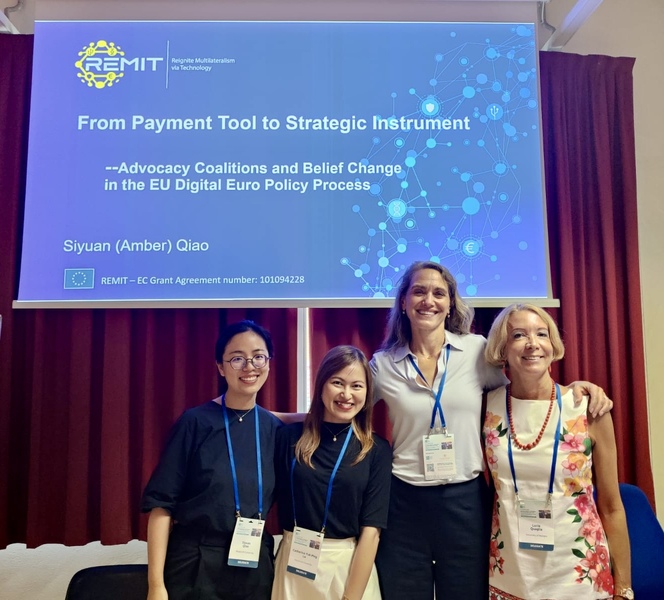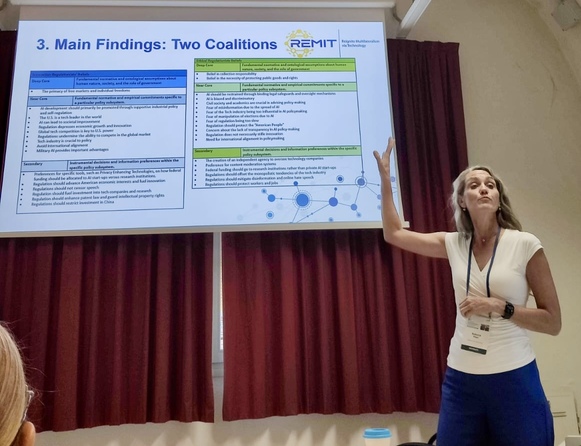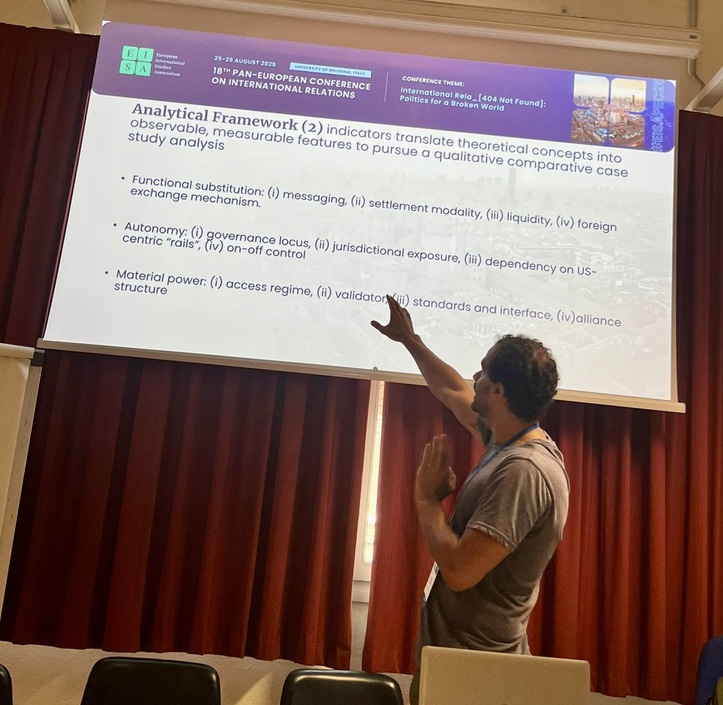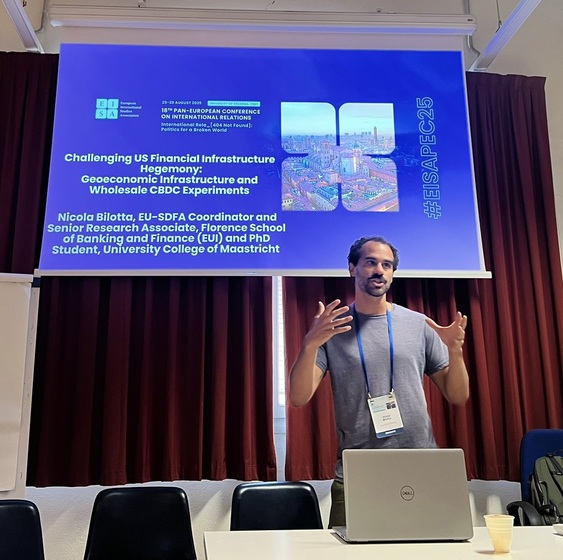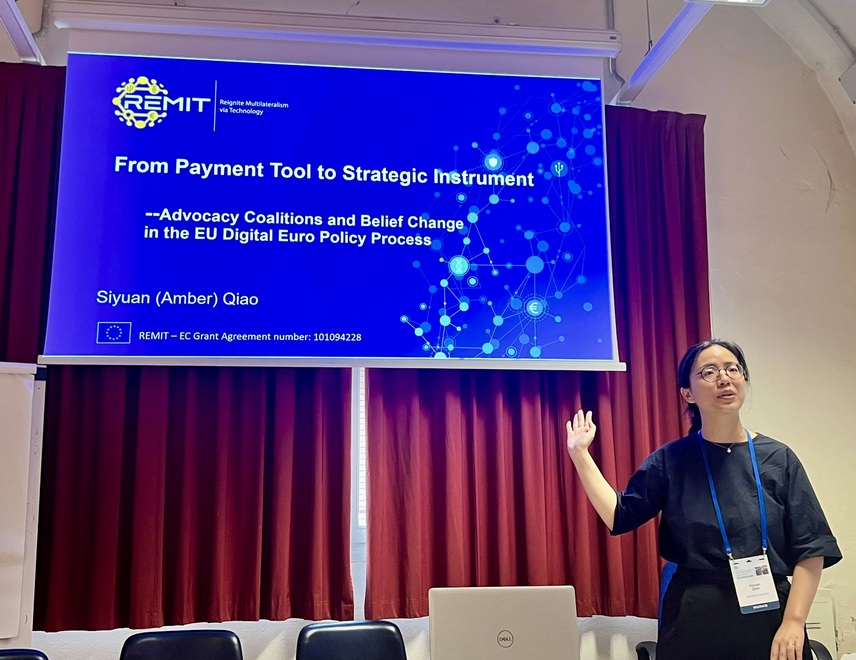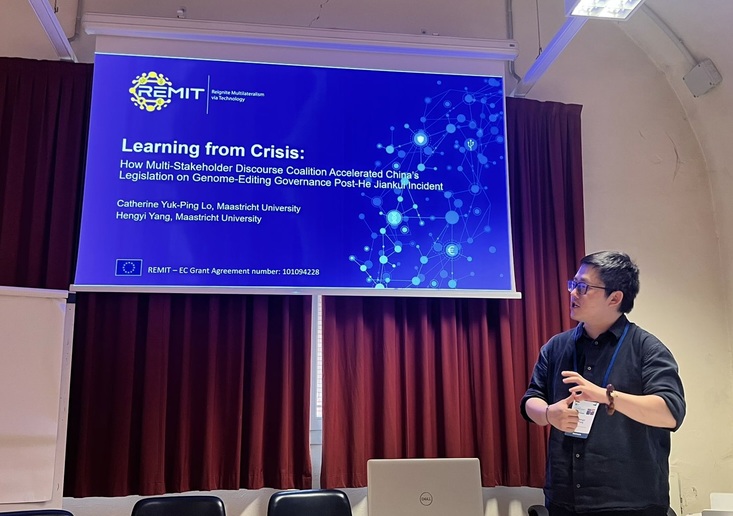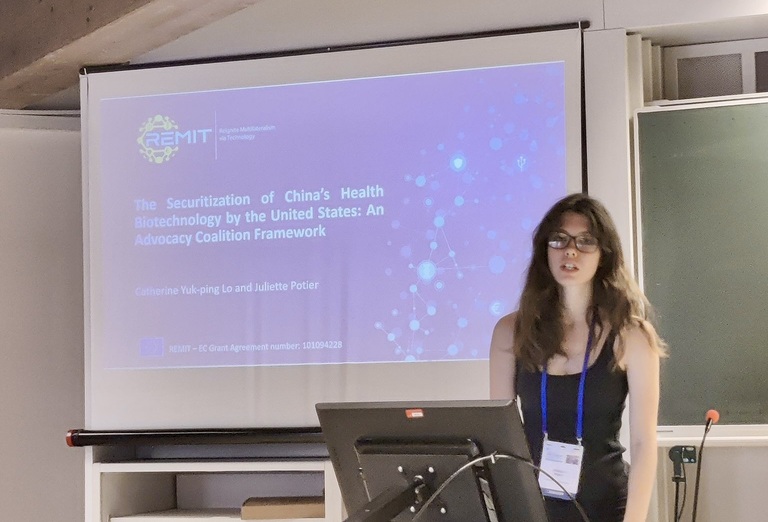At the 18th Pan-European Conference on International Relations (EISA PEC 2025), held at the University of Bologna from 25–29 August 2025, the REMIT consortium hosted the section Navigating the Geopolitics of Strategic Technology.
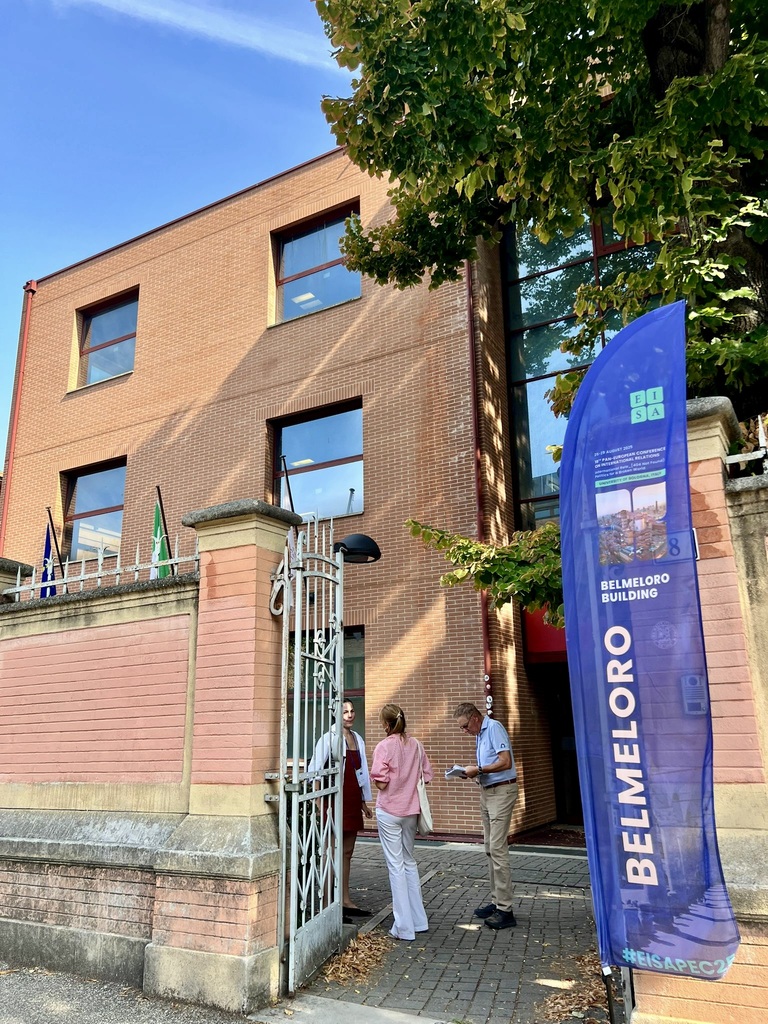
Thirty papers were presented in the 9-panel section, which was co-chaired by REMIT consortium members Roberta N. Haar and Paul Timmers. The section explored how strategic technologies are transforming the global political landscape. Across the panels, researchers examined the dynamics of geopolitical rivalry, regulatory frameworks, and multilateralism, with a particular focus on the interactions between China, the United States, and the European Union.
Prominent topics were:
- Geopolitical rivalries, especially between the US and China, including a full REMIT panel dedicated to this question.
- Quantum technologies, with one panel featuring four in-depth papers on their strategic and security implications.
- Trade, digital governance, and export controls, particularly regarding dual-use technologies.
- Ethical and strategic dimensions of AI governance, with a focus on military applications, surveillance and autonomous weapons.
- Emerging fields such as central bank digital currencies and biotechnology, addressed in a panel that also featured REMIT researchers.
The section emphasised both the opportunities and risks of technological change, asking whether key global actors will compete or cooperate in shaping the rules of the global technological order.
Individual papers proposed to the section by EISA scholars covered a wide range of timely topics, including:
- EU and US dual-use export controls toward China.
- The politics and geoeconomics of the digital euro.
- Quantum security and its implications for human rights.
- China’s AI internationalization and standardization culture.
- EU cybersecurity governance and digital sovereignty in healthcare.
- Infrastructure security in Italy’s telecommunications sector.
- US AI policymaking.
Taken together, the panels and papers underscored that strategic technologies are not only redefining power relations among states but also raising pressing questions for economic resilience, ethical governance, and human rights. The section’s research intends to contribute valuable insights to the broader debate on how to govern disruptive technologies in a rapidly changing world.
Stay tuned, as a co-edited volume is in preparation. It builds on the research presented in the REMIT section and provisionally has the same title, Navigating the Geopolitics of Strategic Technology.
REMIT thanks all its researchers for representing the project so well at an event as prestigious as EISA! Special thank you, of course, to our panel’s organisers, without who a major opportunity for the project couldn’t have been taken.
We were represented by:
- Katja Creutz
- Ville Sinkkonen
- Catherine Lo
- Paul Timmers
- Raluca Moldovan
- Apolline Rolland
- Flavia Lucenti
- Nicola Bilotta
- Hengyi Yang
- Siyuan Qiao
- Aysajan Abidin
We also thank outside researchers who contributed greatly to our panel in various roles:
- Nicola Palladino
- Ingvild Bode
- Lucia Quaglia
- Maya Müller-Perron
- Juliette Potier
Images by Roberta Haar, Ville Sinkkonen, Siyuan Qiao, and Catherine Lo
